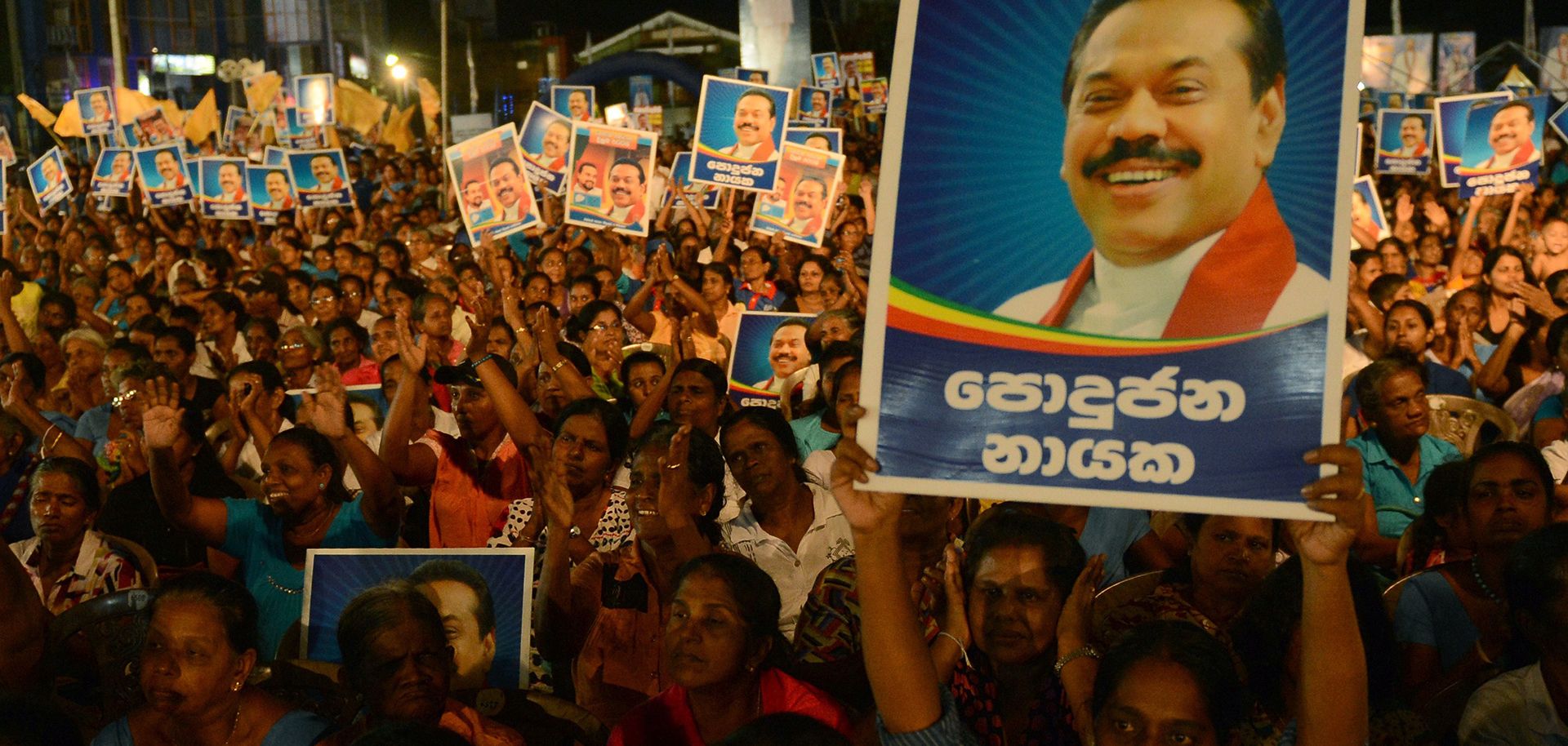ASSESSMENTS
Sri Lanka's Political Establishment Faces a Challenge
Jan 8, 2015 | 05:17 GMT

(LAKRUWAN WANNIARACHCHI/AFP/Getty Images)
Summary
Sri Lankans head to the polls Jan. 8 in what has become one of the most serious electoral challenges President Mahinda Rajapaksa has faced in his 40-year political career. With the success of Tamil opposition parties in northern Sri Lanka and increasing criticism directed at what has been described as his authoritarian leadership style, Rajapaksa announced Nov. 17 that elections would be held in January 2015 — two years ahead of schedule. Rajapaksa still enjoys strong support from the core Sinhalese Buddhist population, despite the increasing popularity of his rival, former Health Minister Maithripala Sirisena, who has appealed not only to Sri Lankan Tamils and Muslims but also to Sinhalese opposition and former Rajapaksa voters.
But even if Sirisena were to win the election, he would face an uphill battle in claiming power from the deeply entrenched Rajapaksa political machine, especially since the early election would have him face government institutions and a parliament still dominated by the incumbent's United People's Freedom Alliance party. Sri Lanka is looking at considerable political upheaval in coming years, especially because parliamentary polls are scheduled for 2016 and an increasingly emboldened opposition is eager to challenge Rajapaksa's longstanding control over government expenditures and development projects.
Subscribe Now
SubscribeAlready have an account?
